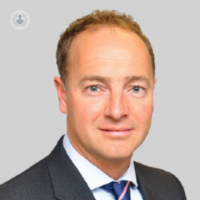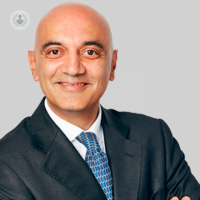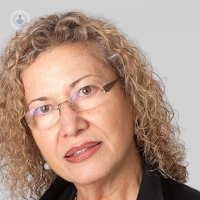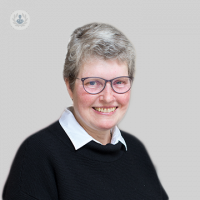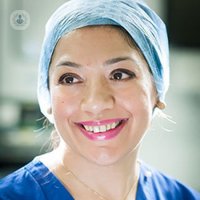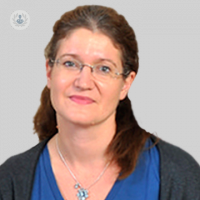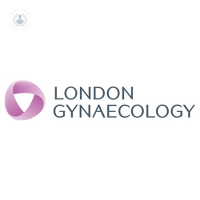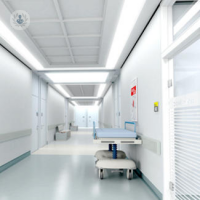What is menopause?
The menopause refers to the process which naturally occurs in women as a result of ageing, meaning they no longer have periods and are unable to conceive. Menopause usually happens between the ages of 45 and 55, with the average age in the UK for women being 51. It is a new stage in a woman’s life and brings a number of both physical and emotional changes.
During menopause, a woman’s oestrogen levels naturally decrease. This can cause menopausal symptoms, which vary from being mild to severe. Occasionally, women experience early (or premature) menopause, which happens before the age of 40.
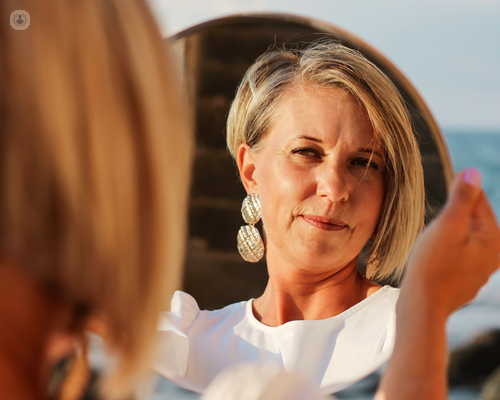
What are the symptoms of the menopause?
Symptoms of menopause can begin months, or years before periods finally cease, and typically go on for around four years after periods have stopped. Common symptoms include:
- Hot flushes/flashes
- Vaginal dryness
- Problems sleeping
- Feeling low
- Anxiety
- A loss of libido
- Night sweats
- Difficulty concentrating
What causes menopause?
As we get older, our sex hormones change, with the ovaries not producing as much oestrogen as they once did. This means that eggs are no longer released from the ovaries. Menopause is a natural part of ageing.
In some cases, menopause can be caused by medical treatments, such as treatment for breast cancer (e.g chemotherapy or radiotherapy). Surgery removing the ovaries can also cause menopause to happen, and medical conditions or medication may be the reason behind early menopause.
How can menopause symptoms be treated?
Hormone replacement therapy (often called HRT) is one of the most effective treatments for menopause symptoms, and it is also able to maintain bone strength, thus helping in the prevention of osteoporosis (a bone thinning condition). Hormone replacement therapy can be applied through hormonal coils, tablets, patches, and pessaries. Smaller doses can also be used, for example in topical application to the vagina, to relieve dryness. However, before using HRT, it is important that the GP or gynaecologist explains the risks and benefits of the therapy, so the patient can make an informed decision.
Symptoms of menopause can also be managed through lifestyle changes, e.g eating healthily, and exercising regularly. Being at a good level of fitness can help to relieve some of the symptoms of the menopause. Some types of therapy can also help women to deal with low mood, or anxiety. There are non-hormonal interventions that can be used, and it is important to consider all the alternatives, pros and cons and make the right choice for you.
Should I see a doctor?
If menopause symptoms occur before the age of 45, consult your GP and talk to them about the symptoms you are having. They may order a blood test to see if the symptoms are indeed related to the menopause. Blood tests can also be ordered to confirm menopause after evaluating symptoms.
11-13-2012 11-16-2023Menopause
Mr Jullien Brady - Obstetrics & gynaecology
Created on: 11-13-2012
Updated on: 11-16-2023
Edited by: Karolyn Judge
What is menopause?
The menopause refers to the process which naturally occurs in women as a result of ageing, meaning they no longer have periods and are unable to conceive. Menopause usually happens between the ages of 45 and 55, with the average age in the UK for women being 51. It is a new stage in a woman’s life and brings a number of both physical and emotional changes.
During menopause, a woman’s oestrogen levels naturally decrease. This can cause menopausal symptoms, which vary from being mild to severe. Occasionally, women experience early (or premature) menopause, which happens before the age of 40.

What are the symptoms of the menopause?
Symptoms of menopause can begin months, or years before periods finally cease, and typically go on for around four years after periods have stopped. Common symptoms include:
- Hot flushes/flashes
- Vaginal dryness
- Problems sleeping
- Feeling low
- Anxiety
- A loss of libido
- Night sweats
- Difficulty concentrating
What causes menopause?
As we get older, our sex hormones change, with the ovaries not producing as much oestrogen as they once did. This means that eggs are no longer released from the ovaries. Menopause is a natural part of ageing.
In some cases, menopause can be caused by medical treatments, such as treatment for breast cancer (e.g chemotherapy or radiotherapy). Surgery removing the ovaries can also cause menopause to happen, and medical conditions or medication may be the reason behind early menopause.
How can menopause symptoms be treated?
Hormone replacement therapy (often called HRT) is one of the most effective treatments for menopause symptoms, and it is also able to maintain bone strength, thus helping in the prevention of osteoporosis (a bone thinning condition). Hormone replacement therapy can be applied through hormonal coils, tablets, patches, and pessaries. Smaller doses can also be used, for example in topical application to the vagina, to relieve dryness. However, before using HRT, it is important that the GP or gynaecologist explains the risks and benefits of the therapy, so the patient can make an informed decision.
Symptoms of menopause can also be managed through lifestyle changes, e.g eating healthily, and exercising regularly. Being at a good level of fitness can help to relieve some of the symptoms of the menopause. Some types of therapy can also help women to deal with low mood, or anxiety. There are non-hormonal interventions that can be used, and it is important to consider all the alternatives, pros and cons and make the right choice for you.
Should I see a doctor?
If menopause symptoms occur before the age of 45, consult your GP and talk to them about the symptoms you are having. They may order a blood test to see if the symptoms are indeed related to the menopause. Blood tests can also be ordered to confirm menopause after evaluating symptoms.


How to manage menopausal symptoms
By Professor Gordana Prelevic
2025-02-05
For women with menopausal symptoms, making a personal, informed decision about beginning HRT, otherwise known as hormone replacement therapy, can be challenging and scary. HRT is a form of hormone therapy used to treat symptoms associated with the menopause. We asked Professor Gordana Prelevic, a consultant endocrinologist, to tell us about HRT, the associated risks and alternative therapies. See more
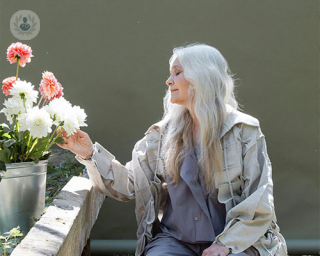

The final bloom: what to expect during the menopausal process
By Dr Sandar Hlaing
2025-02-05
Menopause is the inevitable end of the menstruation cycle that will happen to all women. Women approaching menopause will begin to exhibit symptoms that may be uncomfortable, but should not be cause to feel embarrassment. Menopause may have historically been talked about in hushed tones and private rooms, but today we chose to disucss it loudly and proudly. See more
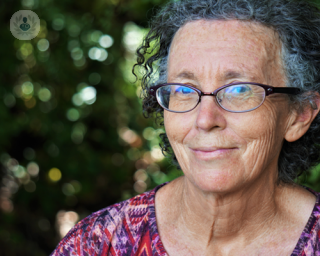

Considering HRT… what do I need to know?
By Mr Michael Magro
2025-02-05
Hormone replacement therapy (HRT) is a safe treatment for women, which is aimed at improving menopausal symptoms. Menopause usually occurs between the ages of 45-55. However, symptoms can start before periods stop (perimenopause), and if the menopause occurs before the age of 40 years, it's known as premature ovarian insufficiency (POI). Leading London gynaecologist Mr Michael Magro goes into expert detail about this valuable treatment in this informative article, considering its benefits, risks and the different types, among other important points. See more


Is my period cycle normal?
By Miss Aruna Ramineni
2025-02-05
Everyone’s period cycles are different and many things can affect them. But how can you tell if there is something wrong? When should you see a doctor about your periods? And why can menstrual cycles vary so much? We asked leading obstetrician/gynaecologist Miss Aruna Ramineni, who has the answers. See more
Experts in Menopause
-
Mr Arvind Vashisht
Obstetrics & gynaecologyExpert in:
- Endometriosis
- Pelvic floor reconstructive surgery
- Urinary incontinence
- Vaginal prolapse
- Menopause
- Menstrual disorders
-
Professor Gordana Prelevic
Endocrinology, diabetes & metabolismExpert in:
- Hypothyroidism
- Hyperparathyroidism
- Osteoporosis
- Menopause
- Polycystic ovary syndrome (PCOS)
- Thyroid disorders
-
Miss Christine Robinson
Obstetrics & gynaecologyExpert in:
- Contraceptive methods
- Hormone replacement therapy (HRT)
- Menopause
- Intrauterine device (IUD)
- Polycystic ovary syndrome (PCOS)
- Premenstrual syndrome (PMS)
-
Dr Shazia Malik
Obstetrics & gynaecologyExpert in:
- Menopause
- Caesarean
- Miscarriage
- Pregnancy counselling
- Polycystic ovary syndrome (PCOS)
- Heavy periods
-
Professor Joanne Hockey
Obstetrics & gynaecologyExpert in:
- Pelvic floor
- Fibroids
- Menopause
- Pelvic pain
- Urinary incontinence
- Vaginal prolapse
- See all

The Shelburne Hospital - part of Circle Health Group
The Shelburne Hospital - part of Circle Health Group
Queen Alexandra Rd, High Wycombe HP11 2TR
No existe teléfono en el centro.
By using the telephone number provided by TOP DOCTORS, you automatically agree to let us use your phone number for statistical and commercial purposes. For further information, read our Privacy Policy
Top Doctors

London Gynaecology - The Portland Hospital
London Gynaecology - The Portland Hospital
212 Great Portland Street London W1W 5QN
No existe teléfono en el centro.
By using the telephone number provided by TOP DOCTORS, you automatically agree to let us use your phone number for statistical and commercial purposes. For further information, read our Privacy Policy
Top Doctors

Spire Little Aston Hospital
Spire Little Aston Hospital
Little Aston Hall Drive, Sutton Coldfield, B74 3UP
No existe teléfono en el centro.
By using the telephone number provided by TOP DOCTORS, you automatically agree to let us use your phone number for statistical and commercial purposes. For further information, read our Privacy Policy
Top Doctors
-
The Shelburne Hospital - part of Circle Health Group
Queen Alexandra Rd, High Wycombe HP11 2TR, High WycombeExpert in:
- Abdominal ultrasound
- Allergies Ophthalmological
- Clinical analysis
- Hip
- Cataracts
- Full Body Check
-
London Gynaecology - The Portland Hospital
212 Great Portland Street London W1W 5QN, Central LondonExpert in:
- Miscarriage
- Thrush
- Colonoscopy
- Maternity care
- Ultrasound
- Pregnancy
-
Spire Little Aston Hospital
Little Aston Hall Drive, Sutton Coldfield, B74 3UP, Sutton ColdfieldExpert in:
- Bariatric Surgery
- General Surgery
- Orthopaedic surgery
- Robotic Surgery
- Diagnostic Imaging
- Ophthalmology
- See all
- Most viewed diseases, medical tests, and treatments
- Polycystic ovary syndrome (PCOS)
- Cardiac screening
- Respiratory infection
- Osteoporosis
- Menopause support
- PGT-M
- Alzheimer's disease
- Tubal factor infertility
- Cluster headaches
- Tension headache
